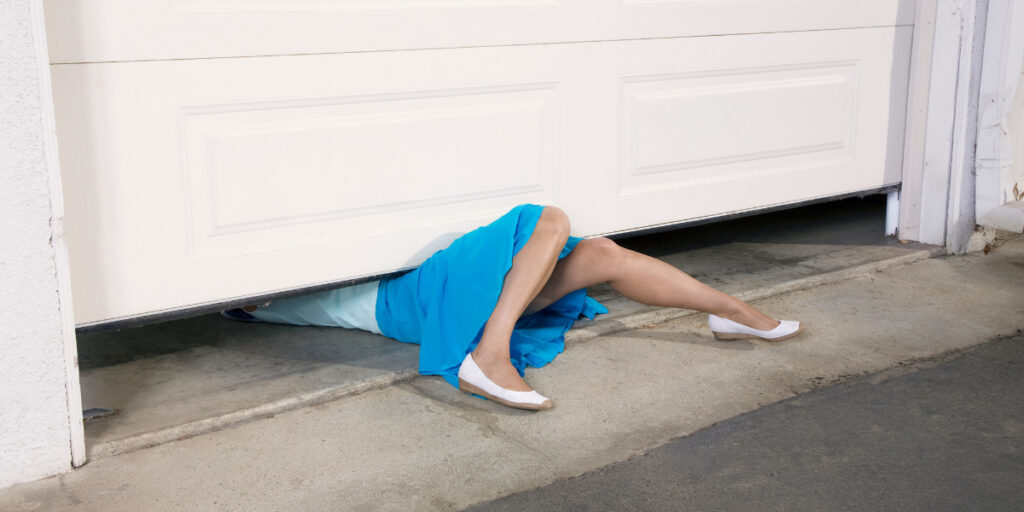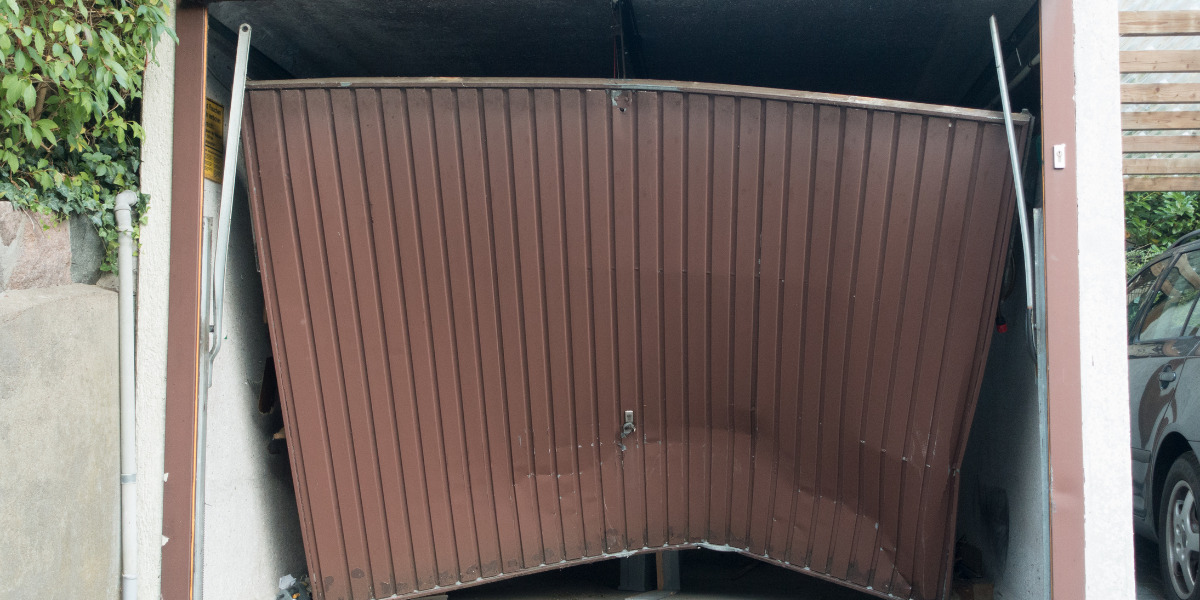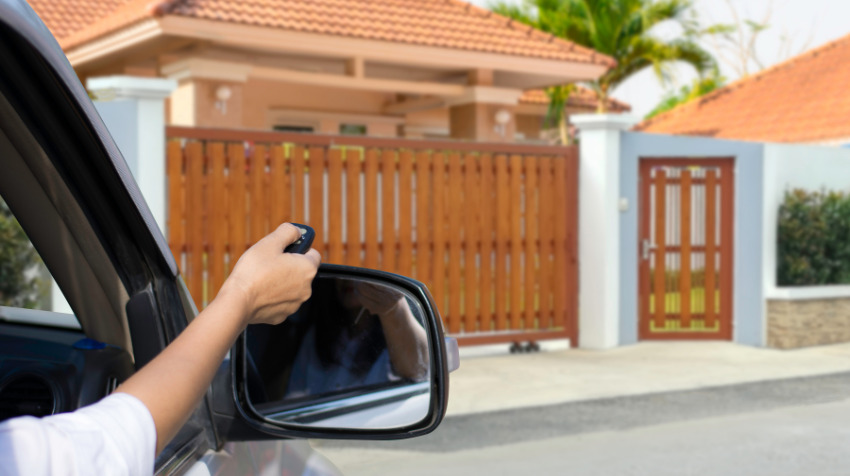Prioritizing Safety: Tips to Avoid Emergency Garage Door Repair in Caboolture
Garage doors are an essential and frequently used part of many homes. They provide convenience, security, and protection for our vehicles and belongings. However, it’s crucial to recognize that garage doors can also pose significant safety risks if not properly maintained and operated. Thousands of accidents occur each year due to garage door malfunctions and mishaps, resulting in injuries and property damage. This makes understanding and implementing garage door safety measures of paramount importance for every homeowner.
Regular Maintenance for Safe Operation
Importance of Regular Garage Door Maintenance:
Regular maintenance is crucial for ensuring the safe and reliable operation of your garage door. A properly maintained garage door not only enhances the curb appeal of your home but also reduces the risk of accidents and costly repairs. Here are some key reasons why regular maintenance is important:
- Safety: A garage door is one of the largest moving parts of your home, and if not properly maintained, it can pose safety risks to you and your family. Regular maintenance helps identify and fix potential issues before they become dangerous, such as misaligned tracks, worn-out springs, or malfunctioning sensors.
- Longevity: A well-maintained garage door can last significantly longer than one that is neglected. By addressing minor problems early on, you can prevent them from escalating into major issues that may require expensive repairs or even a complete replacement.
- Cost Savings: Investing in regular maintenance can save you money in the long run. Small adjustments, lubrication, and preventive measures are far less costly than dealing with major repairs or replacing the entire garage door system.
- Operational Efficiency: Properly maintained garage doors operate smoothly and quietly, ensuring convenient access to your garage. Regular inspections and adjustments can help keep the system running efficiently, saving energy and reducing wear and tear on components.
Visual Inspection Checklist:
Performing a visual inspection on your garage door regularly can help you catch potential problems early. Here’s a checklist to guide you:
- Check for any signs of wear and tear on the door panels and hardware, such as rust, dents, or cracks.
- Inspect the springs for any signs of sagging or damage. If your door uses extension springs, look for stretched-out or loose cables.
- Examine the cables and rollers for fraying, wear, or damage. Damaged cables can be hazardous and should be addressed promptly.
- Test the balance of the door by disconnecting the opener and manually lifting the door. It should stay in place at various heights without falling or rising.
- Ensure the safety features, such as the photo-eye sensors, are working correctly by checking if the door reverses when an object obstructs the beam.
- Listen for any unusual noises while operating the door, such as grinding, scraping, or squeaking sounds, which may indicate the need for lubrication or adjustments.
Lubrication and Tightening of Hardware:
Proper lubrication and tightening of hardware are essential for smooth and quiet garage door operation. Here’s how you can do it:
- Use a silicone-based lubricant or garage door lubricant to grease the rollers, hinges, tracks, and springs. Avoid using oil or grease, as they can attract dirt and debris.
- Check all nuts, bolts, and screws on the door and tracks. Tighten any loose ones, but be careful not to over tighten, as this can cause damage.
Spring Tension Adjustment and Replacement:
Garage door springs are under a lot of tension and should be handled with extreme care. If you’re not experienced with garage door systems, it’s best to leave spring adjustment and replacement to a professional technician. However, understanding the basics is still valuable:
- Extension Springs: These are mounted on either side of the garage door and stretch and contract to assist in lifting and closing the door. If they are worn, damaged, or show signs of stress, they should be replaced by a professional.
- Torsion Springs: These are located above the door and wind and unwind to provide lifting force. Adjusting or replacing torsion springs can be dangerous and should only be done by a trained technician.
Weather Stripping and Track Clearing:
- Inspect the weather stripping around the garage door for cracks, gaps, or damage. Replace weather stripping as needed to maintain a tight seal and prevent drafts, water, and pests from entering the garage.
- Regularly clean the tracks of the garage door to remove any dirt, debris, or obstructions that may impede smooth movement. Use a damp cloth to wipe the tracks and ensure they are clear.

Child and Pet Safety
Educating children about garage door safety:
One of the most crucial aspects of ensuring child and pet safety around garage doors is education. Children should be taught about the potential dangers associated with garage doors and why they should never play near or under them. Parents, caregivers, and schools should collaborate to educate children about the following garage door safety rules:
- Do not stand, walk, or play under a moving garage door.
- Never touch the garage door while it is in motion.
- Do not tamper with the garage door’s safety sensors or any other components.
- Always wait for the garage door to fully open or close before entering or exiting the garage.
- Keep fingers and objects away from the door’s moving parts.
- Never race or play “chicken” with the garage door.
- Inform an adult immediately if there is any issue or malfunction with the garage door.
Using interactive and age-appropriate methods to teach these rules, such as engaging videos, demonstrations, or simple safety quizzes, can make the learning process enjoyable and effective for children.
Keeping remote controls out of reach:
Garage door remote controls can be hazardous if left within easy reach of children or mischievous pets. To prevent accidents, it is essential to keep the remote controls in a safe and secure location, out of the reach of young children and pets. Consider the following steps:
- Store the remote control on a high shelf or in a locked cabinet when not in use.
- Use keychain remotes or wireless keypad systems that can be mounted at a height inaccessible to children.
- Teach older children about the responsibility of handling the remote control and emphasize the importance of keeping it away from younger siblings.
By ensuring that the remote control is not easily accessible, the risk of children or pets inadvertently operating the garage door is significantly reduced.
Installing wall-mounted switches at a safe height:
Along with keeping remote controls out of reach, installing wall-mounted switches for the garage door opener can add an extra layer of safety. Wall switches should be placed at a height that is inaccessible to young children but easily accessible to adults. This way, only responsible individuals can control the garage door’s movement.
Furthermore, modern garage door openers often come with features like vacation mode or parental lock, which can be activated to disable the wall switch and remote control functionalities temporarily. These features can be especially useful when families are away or when parents want to ensure that children don’t operate the garage door without supervision.
Supervising children and pets around garage doors:
Supervision is perhaps the most critical safety measure when it comes to child and pet safety around garage doors. Adults should always keep an eye on their children and pets while they are in or near the garage area. Avoid leaving young children or pets unattended, especially when the garage door is in operation or partially open.
Additionally, parents should encourage open communication with their children about garage door safety. Children should feel comfortable approaching their parents or guardians if they have any questions or concerns about the garage door or its operation. This open dialogue fosters a safer environment and enables parents to address any misconceptions or potential hazards proactively.
Avoiding DIY Repairs for Complex Issues
The risks of attempting complex repairs without expertise:
- Personal Safety Concerns: Complex garage door repairs often involve heavy and large components, such as garage door springs and cables, which can be dangerous if mishandled. Incorrect handling of these parts can lead to serious injuries to yourself or others around you.
- Property Damage: Without the proper knowledge and tools, attempting complex repairs on a garage door can result in accidental damage to the door itself, the surrounding structure, or other property nearby. This can be costly to repair and may lead to further complications.
- Voiding Warranty: Many garage doors come with warranties that may become void if unauthorized repairs are attempted. If you try to fix a complex issue yourself and make matters worse, you could end up with additional expenses that won’t be covered by the manufacturer.
- Lack of Expertise: Complex garage door issues often require in-depth knowledge of the specific mechanisms and systems involved. Without proper training and experience, it’s easy to misdiagnose the problem or apply incorrect solutions, leading to more problems in the long run.
Understanding the limitations of DIY repairs:
- DIY Tutorials Aren’t Always Sufficient: While DIY tutorials and online guides can be helpful for simple garage door repairs, they might not cover the complexities of every issue. Some problems may have underlying causes that require professional expertise to identify and resolve.
- Limited Tools and Equipment: Garage door repairs often require specialized tools and equipment, which DIYers might not possess. Using improper tools can damage the components and compromise the functionality of the garage door.
- Time and Effort: DIY repairs can be time-consuming, especially if you’re not familiar with the process. Hiring a professional can save you valuable time and effort while ensuring the job is done correctly.
Importance of hiring a professional garage door technician:
- Expertise and Experience: Professional garage door technicians have undergone training and have hands-on experience with various garage door systems. They are familiar with different types of doors, their mechanisms, and common issues, making them better equipped to diagnose and fix complex problems.
- Safety and Liability: Professional technicians follow safety protocols and have insurance coverage to protect you and your property in case of any accidents or damages during the repair process.
- Reliable Solutions: A professional garage door technician can provide lasting and effective solutions, ensuring that the problem is properly addressed, reducing the likelihood of recurring issues.
- Warranty and Guarantees: Reputable garage door companies often provide warranties or guarantees for their work. This means that if any issues arise after the repair, they will come back and fix it without additional charges.
Choosing a reputable garage door repair service:
- Research and Reviews: Look for local garage door repair services with a good reputation. Check online reviews and testimonials from previous customers to get an idea of their service quality.
- Licensing and Insurance: Ensure that the company is licensed to operate in your area and has liability insurance to protect you from any potential damages or accidents during the repair process.
- Experience and Expertise: Opt for a company that has been in the garage door repair business for a considerable amount of time. Experienced technicians are more likely to handle complex issues efficiently.
- Transparent Pricing: Request quotes from different companies and compare their pricing structures. Choose a service that provides transparent pricing without hidden fees.
- Customer Service: Excellent customer service is a sign of a reputable company. Choose a service that is responsive, professional, and willing to answer any questions you may have.
Garage Door Security
Importance of Securing the Garage Door to Prevent Break-ins:
Securing the garage door is of paramount importance for maintaining the overall security of your home. The garage is often overlooked when it comes to home security, but it serves as an entry point to your house that potential intruders can exploit. Here are some reasons why securing the garage door is crucial:
- Vulnerable Entry Point: Garages are frequently targeted by burglars because they often contain valuable items such as vehicles, tools, and other expensive equipment. A weak or improperly secured garage door can become an easy entry point, allowing intruders to gain access to your possessions and potentially your home.
- Disguised Crime: Unlike a broken window or forced entry at the front door, garage break-ins can go unnoticed for a longer time, giving burglars more time to pilfer belongings and escape without being detected.
- Connected to the House: Many garages have direct access to the interior of the house, either through an internal door or an adjacent room. A breach in the garage door can provide intruders with a direct path to the living area, putting you and your family at risk.
- Repeat Targeting: If burglars successfully break into your garage once, they might consider it an easy target and return for subsequent attempts.
Upgrading to Modern Security Features:
To enhance garage door security, homeowners should consider upgrading to modern security features that provide better protection against break-ins. Some essential upgrades include:
- Strong and Durable Materials: Install a garage door made of sturdy materials like steel or reinforced wood to make it more resistant to forced entry.
- High-Quality Locks: Replace outdated or flimsy locks with high-quality deadbolts or smart locks that offer superior security.
- Security Lighting: Illuminate the garage area with motion-activated lights to deter potential intruders from approaching.
- Reinforced Windows: If your garage door has windows, consider upgrading to shatter-resistant or reinforced glass to prevent easy access.
- Secure Remote Control: If your garage door operates with a remote control, choose one with rolling code technology to prevent code grabbing and cloning.
Using Smart Technology for Added Security and Monitoring:
Integrating smart technology into your garage door security can significantly enhance safety and provide peace of mind. Here are some smart features to consider:
- Smart Garage Door Opener: Invest in a smart garage door opener that allows you to control and monitor your garage door remotely using a smartphone app. This enables you to check the door’s status, receive alerts if it’s left open, and close it remotely if necessary.
- Video Surveillance: Install security cameras inside and outside the garage to monitor activity and capture potential break-ins. Make sure the cameras have motion detection and can send real-time alerts to your phone.
- Smart Sensors: Place door and window sensors on the garage door to receive notifications when it’s opened or tampered with. These sensors can be integrated into a larger smart home security system for comprehensive monitoring.
- Digital Access Control: Consider implementing digital keypads or fingerprint scanners for secure access to the garage. This way, you can provide temporary access codes to family members or service providers and revoke them as needed.
- Integration with Home Security System: Integrate your garage door security with your overall home security system to create a cohesive and comprehensive protection network.
Educating Household Members
Communicating garage door safety rules to all household members:
Garage door safety is of utmost importance in any household, as garage doors can pose potential risks if not handled properly. It is essential to communicate garage door safety rules clearly and effectively to all household members. Here are some key points to consider when educating household members about garage door safety:
- Explain the Risks: Begin by discussing the potential dangers associated with garage doors. Emphasize that garage doors are heavy and can cause serious injury or damage if not operated correctly.
- Demonstrate Safe Operation: Show each household member how to operate the garage door safely. Explain the importance of using the wall-mounted control or remote control, rather than attempting to manually lift or close the door.
- Keep Children Informed: Make sure children are aware of the safety rules and the garage door’s potential hazards. Stress that they should never play near the garage door or attempt to operate it without adult supervision.
- Do Not Rush: Remind everyone to avoid rushing when entering or exiting the garage. Encourage them to wait until the door is fully open or closed before proceeding.
- Inspect Regularly: Teach household members how to inspect the garage door for any signs of wear, damage, or misalignment. If any issues are identified, they should be reported to the responsible person for maintenance.
- Emergency Release: Explain the emergency release feature of the garage door opener and demonstrate how to use it. In case of a power outage or malfunction, this feature allows the door to be manually opened or closed.
- Avoid Standing Under the Door: Stress the importance of never standing under a moving garage door or trying to race underneath as it closes.
Holding regular safety discussions and reminders:
Education is an ongoing process, and holding regular safety discussions and reminders can reinforce garage door safety and other household safety practices. Here are some ways to conduct these discussions effectively:
- Family Meetings: Schedule periodic family meetings to discuss safety topics, including garage door safety. These meetings can serve as a platform to address any concerns or questions regarding safety.
- Safety Posters: Consider placing safety posters near the garage door or in prominent areas of the house. These posters can act as visual reminders of the safety rules and precautions.
- Safety Drills: Conduct safety drills involving the proper use of the garage door, especially in emergency scenarios. Practice how to use the emergency release and evacuation procedures.
- Incorporate into Routine: Integrate safety reminders into daily routines. For example, before leaving the house, remind household members to close the garage door securely.
- Lead by Example: As adults, be role models by consistently following the safety rules. Children are more likely to adopt safe behaviors when they see adults prioritizing safety.
Encouraging open communication about potential issues:
An atmosphere of open communication is essential to address potential safety issues effectively. Encourage household members to voice their concerns and share any problems related to the garage door or other safety matters. Here’s how to foster open communication:
- Create a Safe Space: Make sure everyone feels comfortable discussing safety concerns without fear of judgment or reprimand.
- Listen Actively: When someone brings up a safety issue, listen attentively and take their concerns seriously. Avoid brushing off any perceived minor concerns.
- Feedback and Positive Reinforcement: Provide feedback and positive reinforcement when household members follow safety protocols correctly. Recognize and appreciate safe behaviors.
- Discuss Near-Miss Incidents: If any near-miss incidents occur (situations where an accident was narrowly avoided), discuss them openly. Analyze what went wrong and how to prevent such incidents in the future.
- Regular Safety Check-ins: Periodically check in with household members to see if they have any new safety concerns or suggestions for improvement.
Frequently Asked Questions
Why is garage door safety important?
Garage door safety is essential to prevent accidents and injuries. Garage doors are heavy and can cause serious harm if not operated or maintained correctly. Following safety guidelines ensures a safe environment for you and your family.
What are some common garage door accidents?
Common garage door accidents include getting trapped under a closing door, being hit by a moving door, or experiencing malfunctioning garage door opener incidents.
How often should I perform garage door maintenance?
Regular maintenance is crucial for garage door safety. It is recommended to have a professional inspection and maintenance at least once a year, or every six months if the door is frequently used.
Are there any safety features I can add to my existing garage door?
Yes, you can enhance the safety of your existing garage door by installing additional safety features like photo-eye sensors. These sensors detect objects in the door’s path and prevent it from closing, reducing the risk of accidents.
What should I do if my garage door starts malfunctioning?
If you notice any issues with your garage door, such as strange noises, erratic movements, or failing safety features, immediately stop using the door and contact a professional garage door repair service to assess and fix the problem.
Conclusion
Garage door safety is just one aspect of creating a secure home environment. It is essential to consider the safety of your entire property, both inside and outside. Regularly inspect and maintain other security features, such as locks, alarms, and surveillance cameras, to fortify your home against potential threats.
Moreover, promoting a culture of safety within your community can have a positive impact. Share these essential garage door safety tips with friends, neighbors, and colleagues to raise awareness and encourage others to prioritize safety. By working together, we can create safer neighborhoods and protect our loved ones from preventable accidents and security breaches.
Remember, taking proactive steps toward a safe and secure home not only protects your family but also contributes to the overall well-being of society. Embrace safety as a core value, and let it guide your actions in maintaining a safe and functional garage door and a secure living environment for everyone.





